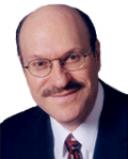Meditation
The Middle East: A Lesson in Freedom
We don't appreciate our freedoms.
Posted March 4, 2011
Like millions of other Americans, I have been riveted to my TV set in recent weeks, watching people protesting and shouting in the streets of far-off places I had only previously read about in books -- Tahrir Square, Pearl Square, Tripoli. I try to imagine what they are feeling and thinking, but it is difficult -- they are literally a world away.
What is it, I wonder, that would make someone bare his chest and defy the surrounding police to shoot him? What would make parents bring their children into these dangerous places, exposing them to injury or death? Again and again, I hear the protestors cry, "Give us our freedom?" What is this thing called freedom, and why are people willing to die for it?
Franklin D. Roosevelt, addressing Congress in 1941, spoke of four freedoms: freedom of expression; freedom to worship in one's own way; freedom from want; and freedom from fear. In many instances, the desperate citizens of Middle East dictatorships lack all these freedoms, which we often take for granted. Freedom, like air or water, is sometimes only appreciated when it is removed or restored. I became acutely aware of this when I moved to the U.S. from Apartheid South Africa in the mid-70s.
In South Africa, I was taught to watch my words in public places. You never knew when the secret police might be lurking around, only that they could do . . . well, anything they wanted if you were arrested. Some people close to me were either braver or less careful than I in speaking out against the government, and paid dearly for their words. One cousin of mine, for example, was thrown into solitary confinement and tortured.
I remember so clearly an incident that happened - or didn't happen - soon after I arrived in the U.S. I was eating in a diner with my family and criticized the president (I forget which one and about what). I felt a fleeting need to look behind me: Who might be listening? Then I realized I was in America. I could say anything I wanted about anybody (well, almost anything) and nothing bad would happen. That was the moment when I understood - perhaps for the first time -- what it means to have freedom of speech.
This past week, the Supreme Court ruled eight to one in favor of the Westboro Baptist Church in Kansas, whose members have taken to picketing with hateful slogans the funerals of fallen soldiers, compounding the pain of grieving friends and relatives. My first instinct was to wish the ruling had gone the other way. Then I remembered how it was to live in a police state -- and how precious is the right to speak freely. It is easy to take that freedom for granted -- until we turn on the TV and see the millions of people willing to die in order to obtain that right.
Norman Rosenthal is a psychiatrist and the author of the forthcoming book Transcendence: Healing and Transformation Through Transcendental Meditation (Tarcher Penguin, 2011). His past books include Winter Blues, and The Emotional Revolution.
Copyright - Norman Rosenthal
Dr. Rosenthal can be found on Twitter @DoctorNorman


